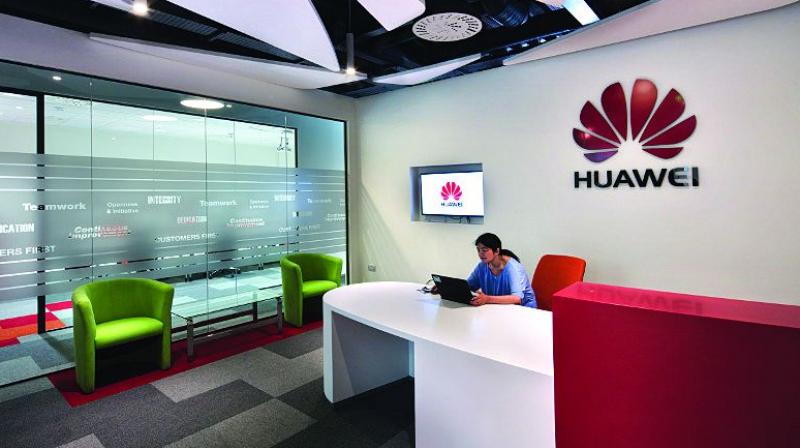Britain speaks on Huawei's role in 5G networks

Image collected
Britain on Monday postponed a decision on whether Huawei could participate in building next-generation 5G mobile networks until it had a clearer picture of the impact of US measures taken against the Chinese company.
“These measures could have a potential impact on the future availability and reliability of Huawei’s products, together with other market impacts, and so are relevant considerations in determining Huawei’s involvement in the network,” Digital Minister Jeremy Wright told parliament.
Until the US position was clearer, Britain had concluded it was wrong to make specific decisions in relation to Huawei, but would do so as soon as possible, he said.
Huawei, the world’s biggest telecoms equipment maker, is at the center of a geopolitical tug-of-war between China and the United States.
The United States has threatened to cut off intelligence sharing with allies who use Huawei equipment, which it says China could exploit for spying.
The Trump administration put Huawei on a blacklist in May, citing national security concerns, barring US chipmakers and software companies from supplying the Chinese firm.
China, in turn, has warned Britain that excluding Huawei could hurt investment and trade.
Britain’s National Security Council, chaired by outgoing Prime Minister Theresa May, discussed the issue in April and decided in principle to block Huawei from critical parts of the 5G network but give it limited access to less sensitive parts.
A final decision was supposed to have been included in a telecoms supply chain review published by Wright on Monday, but May’s resignation has stalled the process. She is due to hand over to her successor on Wednesday.
CYBER SECURITY
Wright said Britain could decide to ban Huawei from the 5G network completely, a move telecom operators have said would delay the roll out of services and significantly add to costs.
EE, the BT-owned market leader, launched its 5G network, which relies in part on Huawei’s equipment, in May. Vodafone has also started UK 5G services, which offer speeds around 20 times faster than 4G and a leap in capacity that will allow millions more devices to be connected.
“It is of course a possibility and remains so that the government may decide that an outright ban on Huawei equipment in the 5G network is the appropriate course of action,” Wright said.
“All that I say today is that we are not yet in a position to make a comprehensive decision about that and as soon as we are then we will.”
The opposition Labour Party’s digital spokesman Tom Watson said a ban on Huawei products could “significantly delay the roll out of 5G technology that will underpin tomorrow’s economy”.
Wright said regulation to enforce cyber security risks had to be significantly strengthened and there had to be a wider range of suppliers to reduce reliance on just a single company in any one network.
The main alternatives to Huawei, whose equipment is already subject to additional security checks in Britain, are Ericsson and Nokia.
The aims would be underpinned by new legislation, Wright said, adding that until new laws were passed telecom operators would be asked to comply on a voluntary basis.
Huawei said the review gave it confidence that it could continue to work with British network operators to roll out 5G.
“The findings are an important step forward for 5G and full fiber broadband networks in the UK and we welcome the government’s commitment to ‘a diverse telecoms supply chain’ and ‘new legislation to enforce stronger security requirements in the telecoms sector’,” Vice President Victor Zhang said.
“After 18 years of operating in the UK, we remain committed to supporting BT, EE, Vodafone and other partners build secure, reliable networks,” he said in a statement.
Source: https://www.deccanchronicle.com
Previous Story
- White House to host meeting with tech executives...
- Huawei’s first 5G phone is launching this month
- Honor 20 review: Huawei's first new phone during...
- Huawei’s Downfall Continues, ARM Cuts Ties!
- FedEx refused a Huawei phone to the US...
- FedEx refused to deliver a Huawei phone into...
- Huawei prepares for 40%-60% fall in international smartphone...
- Huawei Can Build a Fine Phone Without U.S....